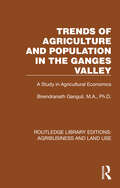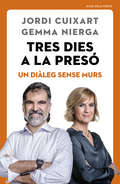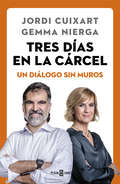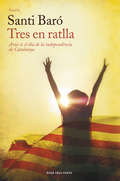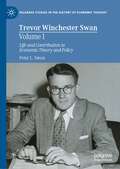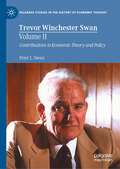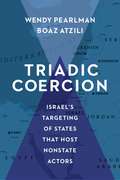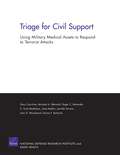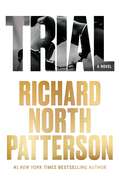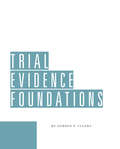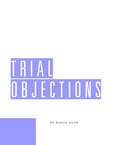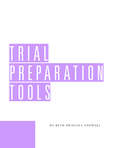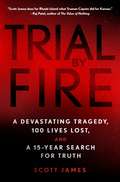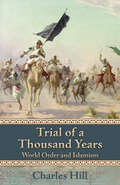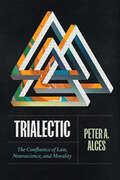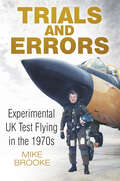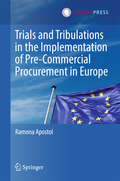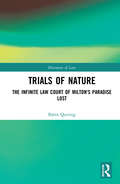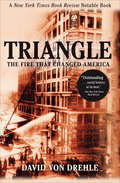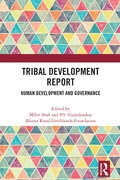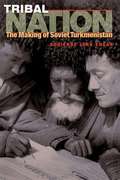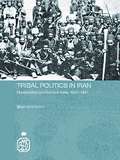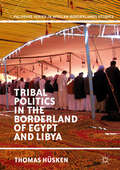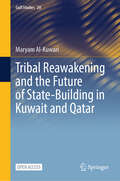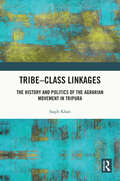- Table View
- List View
Trends of Agriculture in the Ganges Valley: A Study in Agricultural Economics (Routledge Library Editions: Agribusiness and Land Use #11)
by Birendranath GanguliOriginally published in 1938, this book explores the problem of the adjustment of the population in the early 20th century to the agricultural-economic environment in a geographical and economic setting. The study of the modern problem of population growth is also one of human adjustment in its wider sense to the whole of the environment, which in itself is an ensemble of various interdependent factors. The study is based on a classification of agricultural regions in the Ganges Valley which shows some of the world’s highest records of agricultural productivity.
Tres dies a la presó: Un diàleg sense murs
by Jordi Cuixart Gemma Nierga«He trobat la meva llibertat a la presó.» Un diàleg intens de Jordi Cuixart i Gemma Nierga que permet comprendre una figura clau del present polític. «El procés afecta emocionalment tots els catalans, tant si pengem banderes del balcó com si ens prenen per equidistants, i els periodistes hem d'intentar prendre distància i explicar què està passant ara i aquí», afirma Gemma Nierga. Amb aquesta ferma voluntat, ha pogut conversar tres dies amb en Jordi Cuixart en un locutori de la presó de Lledoners. I en un diàleg obert, amb franquesa i contundència, el president d'Òmnium es mostra en la seva dimensió més humana i també en la més política. El llibre és fruit d'aquestes sessions que van tenir lloc en un entorn hostil com el del centre penitenciari, i amb un vidre que força a saludar-se com es fa entre reixes -posant les mans a la mateixa altura, palmell contra palmell- i reflecteix l'excepcionalitat del moment que estem vivint. Amb emoció sincera en alguns moments, amb rigor i sense renúncies a expressar les opinions personals, el diàleg aborda la trajectòria personal de Jordi Cuixart -els seus orígens familiars i la seva experiència professional-, la vida a les presons de Soto del Real i de Lledoners -la convivència amb els altres presos i moments durs com la vaga de fam d'alguns d'ells- i la política, des del paper d'Òmnium en la societat catalana fins a la manifestació davant de la conselleria d'Economia per la que està sent jutjat acusat de rebel·lió. Amb extraordinària transparència, Jordi Cuixart mostra el seu tarannà i la seva visió de futur. «He trobat la meva llibertat a la presó. En una situació adversa, m'he trobat a mi mateix. Soc més lliure dins de la presó que la gent que és fora. Ho soc en parlar de política, ho soc perquè ja no puc patir pels altres», escriu. I conclou: «Des d'un punt de vista polític, penso en el futur de Catalunya. I hem de tenir clar que la situació que estem vivint, malauradament, va per llarg.» I per a tots els lectors -«la persona que he conegut és diferent de la persona que esperava conèixer», afirma Gemma Nierga-, el llibre ofereix un retrat sorprenent i trasbalsador d'una experiència humana i política extraordinàries. «No espero l'indult, perquè Espanya no està preparada per donar-lo. I si arriba, serà una mala notícia per a ells perquè voldrà dir que es gira full i no es resol el conflicte. I aquest problema s'ha de solucionar ara, no el podem traspassar a les properes generacions. Ja l'hem anat arrossegant durant molts anys. Havien dit que moltes coses no es podien fer, però les hem fet: votar l'1 d'Octubre, per exemple. Qui diu que no podem fer un referèndum vinculant al segle XXI?» Jordi Cuixart
Tres días en la cárcel: Un diálogo sin muros
by Jordi Cuixart Gemma Nierga«He encontrado mi libertad en la cárcel.» Un diálogo intenso entre Jordi Cuixart y Gemma Nierga que permite comprender una figura clave en el actual momento político. «El procés afecta emocionalmente a todos los catalanes, tanto si colgamos banderas en el balcón como si nos toman por equidistantes, y los periodistas debemos intentar tomar distancia y explicar qué está ocurriendo aquí y ahora», afirma Gemma Nierga. Con esta firme voluntad, ha podido conversar tres días con Jordi Cuixart en un locutorio de la cárcel de Lledoners. Y en un dialogo abierto, con franqueza y contundencia, el presidente de Òmnium muestra su dimensión humana y también la política. El libro es fruto de estas sesiones que han tenido lugar en un entorno hostil como el de la cárcel y con un cristal que obliga a saludarse como se hace entre rejas -poniendo las manos a la misma altura, palma contra palma- y reflejan la excepcionalidad del momento que vivimos. Con sincera emoción en algunos momentos y sin renunciar a expresar las opiniones personales, la entrevista aborda la trayectoria personal de Jordi Cuixart -sus orígenes familiares y su experiencia profesional-, la vida en las cárceles de Soto del Real y de Lledoners -la convivencia con los otros presos y momentos duros como la huelga de hambre de algunos de ellos- y la política, desde el papel de Òmnium en la Sociedad catalana a la manifestación frente a la Conselleria d'Economia por la que se le juzga acusado de rebelión. Con extraordinaria transparencia, Jordi Cuixart muestra su personalidad y su visión de futuro. «He encontrado mi libertad en la cárcel. Soy más libre dentro de la cárcel que la gente que está fuera. Lo soy cuando hablo de política, lo soy porque no sufro por los demás», afirma. Y concluye: «Desde un punto de vista político, pienso en la situación del futuro de Cataluña. Y debemos tener claro que la situación que estamos viviendo, lamentablemente, va para largo». Y para todos los lectores -«la persona que he conocido es diferente de la persona que esperaba conocer», afirma Gemma Nierga-, el libro ofrece un retrato sorprendente y el relato alarmante de una experiencia humana y política extraordinarias. «No espero el indulto porque pienso que España no está preparada para darlo. Y si llega el indulto, será una mala noticia para España porque querrá decir que se pasa página y no se resuelve el conflicto. Y este problema debemos solucionarlo ahora, no lo podemos traspasar a las próximas generaciones. Ya lo hemos ido arrastrando de una generación a otra durante muchos años. Habían dicho que muchas cosas no se podían hacer, pero las hemos hecho: votar el 1 de Octubre, por ejemplo. ¿Quién dice que no podemos hacer un referéndum vinculante en el siglo XXI?» Jordi Cuixart
Tres en ratlla
by Santi BaróQuan els polítics de CIU, dEsquerra i de Solidaritat sasseguin per fer un front comú i signin un pacte per lluitar plegats per la llibertat, quan el poble els doni suport, quan treballem junts per mostrar la nostra realitat arreu del món i com a resposta ens facin lullet en senyal de suport internacional, únicament quan Catalunya faci un tres en ratlla a Espanya, trencarà amb lestat.Tres en ratlla novel·la lescenari propici per a la proclamació de la independència i pretén mostrar una realitat de la qual només ens separa la por. Per mitjà depisodis curts i àgils, com una mena de guió de cine que viatja de bracet dels personatges, som els testimonis directes de vint-i-quatre hores decisives per al futur de la nació narrades des del Parlament, des del palau de la Generalitat, des dels carrers, des de Los Angeles, des de Madrid, des del quarter general de la Guàrdia Civil, des del Govern Militar, des de la Moncloa... Tres en ratlla recull un somni compartit per la majoria dels catalans, un somni molt més a prop del que gosem imaginar. Un somni que és molt més que una simple novel·la.
Trevor Winchester Swan, Volume I: Life and Contribution to Economic Theory and Policy (Palgrave Studies in the History of Economic Thought)
by Peter L. SwanThis book, the first of two volumes, explores the legacy of Trevor Winchester Swan, often described as Australia’s greatest ever economist. An insightful biography is accompanied with Swan’s most prominent articles to provide a broad view of his life and work. Particular attention is given to the famous Swan Diagram, known among macroeconomists worldwide, Swan’s four zones of economic unhappiness, his view of how economies grew based on capital deepening and technical progress, and the Solow-Swan model of economic growth. This book aims to shed light on the enigmatic and influential life of Trevor Winchester Swan. It will be relevant to students and researchers interested in the history of economic thought.
Trevor Winchester Swan, Volume II: Contributions to Economic Theory and Policy (Palgrave Studies in the History of Economic Thought)
by Peter L. SwanThis book, the second of two volumes, explores the legacy of Trevor Winchester Swan, often described as Australia’s greatest ever economist. Some of Swan’s most prominent articles are presented alongside analysis of his work from leading historians of economic thought to provide a broad and insightful view of his work. Particular attention is given to Swan’s work on the balance of payments, economic development, capital accumulation, and the neoclassical growth model. This book aims to shed light on the enigmatic and influential life of Trevor Winchester Swan. It will be relevant to students and researchers interested in the history of economic thought and those that want to understand the foundations of modern macro, trade, and neoclassical economics.
Triadic Coercion: Israel’s Targeting of States That Host Nonstate Actors (Columbia Studies in Terrorism and Irregular Warfare)
by Boaz Atzili Wendy PearlmanIn the post–Cold War era, states increasingly find themselves in conflicts with nonstate actors. Finding it difficult to fight these opponents directly, many governments instead target states that harbor or aid nonstate actors, using threats and punishment to coerce host states into stopping those groups.Wendy Pearlman and Boaz Atzili investigate this strategy, which they term triadic coercion. They explain why states pursue triadic coercion, evaluate the conditions under which it succeeds, and demonstrate their arguments across seventy years of Israeli history. This rich analysis of the Arab-Israeli conflict, supplemented with insights from India and Turkey, yields surprising findings. Traditional discussions of interstate conflict assume that the greater a state’s power compared to its opponent, the more successful its coercion. Turning that logic on its head, Pearlman and Atzili show that this strategy can be more effective against a strong host state than a weak one because host regimes need internal cohesion and institutional capacity to move against nonstate actors. If triadic coercion is thus likely to fail against weak regimes, why do states nevertheless employ it against them? Pearlman and Atzili’s investigation of Israeli decision-making points to the role of strategic culture. A state’s system of beliefs, values, and institutionalized practices can encourage coercion as a necessary response, even when that policy is prone to backfire.A significant contribution to scholarship on deterrence, asymmetric conflict, and strategic culture, Triadic Coercion illuminates an evolving feature of the international security landscape and interrogates assumptions that distort strategic thinking.
Triage for Civil Support: Using Military Medical Assets to Respond to Terrorist Attacks
by K. Scott Mcmahon Jesse D. Malkin Roger C. Molander Gary Cecchine Michael A. WermuthEven before September 11, 2001, threat assessments suggested that the United States should prepare to respond to terrorist attacks inside its borders. This monograph examines the use of military medical assets to support civil authorities in the aftermath of a chemical, biological, radiological, nuclear, or conventional high explosives attack inside the United States. The authors focus on key questions, including under what circumstances military medical assets could be requested and what assets are likely to be requested.
Trial
by Richard North PattersonTrial confirms Richard North Patterson&’s place as &“our most important author of popular fiction.&”In a propulsive narrative that culminates in a nationally televised murder case, Trial explores America&’s most incendiary flashpoints of race. A Black eighteen-year-old voting rights worker, Malcolm Hill, is stopped by a white sheriff&’s deputy on a dark country road in rural Georgia. His single mother, Allie, America&’s leading voting rights advocate, restlessly awaits his return before police inform her that Malcolm has been arrested for murder. In Washington D.C., the rising, young, white congressman Chase Brevard of Massachusetts is watching the morning news with his girlfriend, only to find his life transformed in a single moment by the appearance of Malcolm&’s photograph. Suddenly all three are enveloped in a media firestorm that threatens their lives—especially Malcolm&’s.
Trial Evidence Foundations
by John Tarantino Gordon ClearyRemembering all the elements required to lay a proper foundation can be difficult. Take the simple admission of a letter. First you have to authenticate the document, then demonstrate that it complies with the best evidence rule if its terms are in issue, then show that it is not hearsay if you intend to use its contents. Trial Evidence Foundations is a handy courtroom guide that will keep you from overlooking any required foundational elements, and point out when your opponent has. Gordon P. Cleary and John A. Tarantino's book contains the rule, elements, tactics, and key cases for most foundations, including: Witnesses * Competency * Establishing credibility * Attacking credibility Authentication * Writings * Oral statements * Recordings * Real or physical evidence Hearsay * Admissions * Declarations * Records * Excited utterances Opinion * Lay witnesses * Experts Privileges * Waiver * Specific privileges Designed for use when time is short, the book is formatted for quick reference. Each foundation is tightly covered in three or four pages. 20 sturdy divider tabs, each printed with a foundation category and color-coded, quickly direct you to the correct page. The book is small enough to fit into a trial case and designed to be taken to the courtroom.
Trial Objections
by R. Rogge Dunn Karen Hirschman Michael OropalloMost evidentiary rulings are within the judge's discretion, and are made in seconds. Bad rulings are rarely reversible. As a result, you need to bring all your admissibility ammunition to bear at the moment of objection. Rogge Dunn's Trial Objections increases your firepower with pattern objection language, explanatory comments, tactics for exclusion, arguments for admission, foundational elements, supporting authority, and practice tips for: * Voir dire * Opening statements * Documentary evidence * Demonstrative evidence * Hearsay evidence * Attorney misconduct * Examination of witnesses * Privileges * Closing arguments * And much more! Trial Objections explains when and how to make and meet objections more successfully. This quick-reference book covers the full range of objections, complete with more than 110 pattern objections, tactics, forms, suggested responses, necessary foundations, and hundreds of state and federal cases. It also includes a handy quick reference guide.
Trial Preparation Tools
by Beth OsowskiCompeting cases and clients can keep you from bringing enough hours, analysis, and organization to readying your cases for trial. Beth D. Osowski's Trial Preparation Tools can help. Use its strategies, tips, forms, checklists, calendars, and idea lists to be better prepared and more efficient. You'll also find tips for effective discovery, picking juries, and proving facts. * Practical checklists: You receive dozens of countdown calendars and to-do checklists that will help you stay organized. * Idea triggers: From theme possibilities through initial opening phrases to sentences for concluding closings, the idea lists will help you brainstorm possibilities for your cases. * Voir dire aids: Learn juror characteristics with the book's voir dire questions and juror questionnaires. Record and analyze your results with her juror selection matrices. * Powerful openings: Sample themes, writing suggestions, and delivery tips help you start persuasively.
Trial by Fire: A Devastating Tragedy, 100 Lives Lost, and a 15-Year Search for Truth
by Scott JamesIn only 90 seconds, a fire in the Station nightclub killed 100 people and injured hundreds more. It would take nearly 20 years to find out why—and who was really at fault. All it took for a hundred people to die during a show by the hair metal band Great White was a sudden burst from two giant sparklers that ignited the acoustical foam lining the Station nightclub. But who was at fault? And who would pay? This being Rhode Island, the two questions wouldn't necessarily have the same answer.Within 24 hours the governor of Rhode Island and the local police commissioner were calling for criminal charges, although the investigation had barely begun, no real evidence had been gathered, and many of the victims hadn't been identified. Though many parties could be held responsible, fingers pointed quickly at the two brothers who owned the club. But were they really to blame? Bestselling author and three-time Emmy Award-winning reporter Scott James investigates all the central figures, including the band's manager and lead singer, the fire inspector, the maker of the acoustical foam, as well as the brothers. Drawing on firsthand accounts, interviews with many involved, and court documents, James explores the rush to judgment about what happened that left the victims and their families, whose stories he also tells, desperate for justice.Trial By Fire is the heart-wrenching story of the fire's aftermath because while the fire, one of America's deadliest, lasted fewer than two minutes, the search for the truth would take twenty years.
Trial of a Thousand Years: World Order and Islamism (Hoover Institution Press Publication #No. 607)
by Charles HillCharles Hill analyzes the refusal of the ideologues of pan-Islam to accept the boundaries and responsibilities of the order of states. He offers a historical perspective on the war of Islamism against the nation-state system, looking at changes in world order from the Thirty Years' War of the seventeenth century to Iran's Islamic revolution in 1979 to the overthrow of Saddam Hussein in Iraq.
Trialectic: The Confluence of Law, Neuroscience, and Morality
by Peter A. AlcesA thought-provoking examination of how insights from neuroscience challenge deeply held assumptions about morality and law. As emerging neuroscientific insights change our understanding of what it means to be human, the law must grapple with monumental questions, both metaphysical and practical. Recent advances pose significant philosophical challenges: how do neuroscientific revelations redefine our conception of morality, and how should the law adjust accordingly? Trialectic takes account of those advances, arguing that they will challenge normative theory most profoundly. If all sentient beings are the coincidence of mechanical forces, as science suggests, then it follows that the time has come to reevaluate laws grounded in theories dependent on the immaterial that distinguish the mental and emotional from the physical. Legal expert Peter A. Alces contends that such theories are misguided—so misguided that they undermine law and, ultimately, human thriving. Building on the foundation outlined in his previous work, The Moral Conflict of Law and Neuroscience, Alces further investigates the implications for legal doctrine and practice.
Trials and Errors: Experimental UK Test Flying in the 1970s
by Mike BrookeMike Brooke's successful RAF career had taken him from Cold War Canberra pilot to flying instructor at the Central Flying School in the 1970s. For his next step he undertook the demanding training regime at the UK’s Empire Test Pilots’ School. His goal: to become a fully qualified experimental test pilot. Trials and Errors follows his personal journey during five years of experimental test flying, during which he flew a wide variety of aircraft for research and development trials. Mike then returned to ETPS to teach pilots from all over the world to become test pilots. In this, the sequel to his successful debut book A Bucket of Sunshine and its follow-up Follow Me Through, he continues to use his personal experiences to reveal insights into trials of the times, successes and failures. Trials and Errors will prove fascinating reading for any aviation enthusiast.
Trials and Tribulations in the Implementation of Pre-Commercial Procurement in Europe
by Ramona ApostolThis book aims to advance the understanding of pre-commercial procurement (PCP) as innovation policy instrument and as means to fulfil public needs. To this end, it places PCP within its political and legal context and elucidates its origins and its economic rationale. Based on this analysis, it suggests a clear conceptualization of PCP and a clear delineation from other innovation policy instruments. Subsequently, the book assesses the value and achievements of the more established type of PCP policy programmes, and draws lessons for improvement. In this context, it raises awareness of the remaining obstacles to its wide and effective implementation and suggests appropriate solutions ranging from policy guidance to law interpretation and legislative reform. The text makes use of illustrative practical examples of policy-making and project implementation in various public programmes of R&D procurement. This is a highly relevant book for academics and practitioners in the field of public procurement. Ramona Apostol is Senior Procurement Adviser at Corvers Procurement Services B. V. in the Netherlands. She holds a Ph. D. in Law from Leiden University, the Netherlands. She has been involved in a wide range of procurement projects related to the implementation of R&D and innovation procurement and regularly acts as independent expert for the European Commission on this topic.
Trials of Nature: The Infinite Law Court of Milton's Paradise Lost
by Björn QuiringFocusing on John Milton’s Paradise Lost , this book investigates the meta-phorical identifi cation of nature with a court of law – an old and persistent trope, haunted by ancient aporias, at the intersection of jurisprudence, phi-losophy and literature. In an enormous variety of texts, from the Greek beginnings of Western literature onward, nature has been described as a courtroom in which an all- encompassing trial takes place and a universal verdict is executed. The first, introductory part of this study sketches an overview of the metaphor’s development in European history, from antiquity to the seventeenth century. In its second, more extensive part, the book concentrates on Milton’s epic Paradise Lost in which the problem of the natural law court finds one of its most fascinating and detailed articulations. Using conceptual tools provided by Hannah Arendt, Walter Benjamin, Hans Blumenberg, Gilles Deleuze, William Empson and Alfred North Whitehead, the study demonstrates that the conflicts in Milton’s epic revolve around the tension between a universal legal procedure inherent in nature and the positive legal decrees of the deity. The divine rule is found to consolidate itself by Nature’s supple-mentary shadow government; their inconsistencies are not flaws, but rather fundamental rhetorical assets, supporting a law that is inherently “double- formed”. In Milton’s world, human beings are thus confronted with a twofold law that entraps them in its endlessly proliferating double binds, whether they obey or not. The analysis of this strange juridical structure can open up new perspectives on Milton’s epic, as well as on the way legal discourse tends to entangle norms with facts and thus to embed itself in human life. This original and intriguing book will appeal not only to those engaged in the study of Milton, but also to anyone interested in the relationship between law, history, literature and philosophy.
Triangle: The Fire That Changed America
by David von DrehleThis &“outstanding history&” of the 1911 disaster that changed the course of 20th-century politics and labor relations &“is social history at its best&” (Kevin Baker, The New York Times Book Review).New York City, 1911. As the workday was about to end, a fire broke out in the Triangle shirtwaist factory of Greenwich Village. Within minutes it consumed the building&’s upper three stories. Firemen were powerless to rescue those trapped inside: their ladders simply weren&’t tall enough. People on the street watched in horror as desperate workers jumped to their deaths. Triangle is both a harrowing chronicle of the Triangle shirtwaist fire and a vibrant portrait of an era. It follows the waves of Jewish and Italian immigration that supplied New York City&’s garment factories with cheap, mostly female labor. It portrays the Dickensian work conditions that led to a massive waist-worker&’s strike in which an unlikely coalition of socialists, socialites, and suffragettes took on bosses, police, and magistrates. And it shows how a public outcry over the fire led to an unprecedented alliance between labor reformers and Tammany Hall politicians. With a memorable cast of characters, including J.P. Morgan&’s blue-blooded activist daughter Anne, and political king maker Charles F. Murphy, as well as the many workers who lost their lives in the fire, Triangle presents a dramatic account of early 20th century New York and the events that gave rise to urban liberalism. A New York Times Book Review Notable Book
Tribal Development Report: Human Development and Governance
by Mihir Shah P. S. VijayshankarThis book sheds light on the status of tribal communities in Central India with respect to governance, human development, gender, health, education, arts, and culture. Written by noted academics, thematic experts, and activists, this first-of-its-kind report by the Bharat Rural Livelihoods Foundation brings together case studies, archival research, and exhaustive data on key facets of the lives of Adivasis, the various programmes meant for their development, and the policy and systems challenges, to build a better understanding of the Adivasi predicament. This volume, Discusses the human development challenges faced by the Adivasis in India, covering the dismal state of health, education, and nutrition in Adivasi regions; Explores key issues related to gender and development in an Adivasi context, the impact of the loss of common lands and forests on their traditional economic roles; Presents the progress made thus far in implementing PESA and FRA; Examines the current state of 'Denotified Tribes' in India, the policy response of the state post-independence, and the abrogation of the act, and discusses the immediate need for recognition of their political rights; Highlights the importance of recognising, developing, and preserving Adivasi arts, music, dance, crafts, language and literature, and knowledge systems. Companion to Tribal Development Report: Livelihoods, this book will be of great interest to scholars and researchers of indigenous studies, development studies, and South Asian studies.
Tribal Nation: The Making Of Soviet Turkmenistan
by Adrienne Lynn EdgarOn October 27, 1991, the Turkmen Soviet Socialist Republic declared its independence from the Soviet Union. Hammer and sickle gave way to a flag, a national anthem, and new holidays. Seven decades earlier, Turkmenistan had been a stateless conglomeration of tribes. What brought about this remarkable transformation? Tribal Nation addresses this question by examining the Soviet effort in the 1920s and 1930s to create a modern, socialist nation in the Central Asian Republic of Turkmenistan. Adrienne Edgar argues that the recent focus on the Soviet state as a "maker of nations" overlooks another vital factor in Turkmen nationhood: the complex interaction between Soviet policies and indigenous notions of identity. In particular, the genealogical ideas that defined premodern Turkmen identity were reshaped by Soviet territorial and linguistic ideas of nationhood. The Soviet desire to construct socialist modernity in Turkmenistan conflicted with Moscow's policy of promoting nationhood, since many Turkmen viewed their "backward customs" as central to Turkmen identity. Tribal Nation is the first book in any Western language on Soviet Turkmenistan, the first to use both archival and indigenous-language sources to analyze Soviet nation-making in Central Asia, and among the few works to examine the Soviet multinational state from a non-Russian perspective. By investigating Soviet nation-making in one of the most poorly understood regions of the Soviet Union, it also sheds light on broader questions about nationalism and colonialism in the twentieth century.
Tribal Politics in Iran: Rural Conflict and the New State, 1921-1941 (Royal Asiatic Society Books)
by Stephanie CroninPlacing Iran's 'tribal problem' in its historical context, Tribal Politics in Iran provides an overall assessment on the impact of this crucial period on the character of tribe-state relations in Iran to the end of Pahlavi rule and in the Islamic Republic. It analyzes the political and socio-economic factors undermining tribal politics under the regime of Reza Shah, and examines the division which took place regarding the 'tribal problem'. The author argues that on the one hand, it lead to modern ethnic nationalism and on the other, detribalization and absorption into wider class or ideology-based organizations happened. Looking particularly at the land reform of the early 1960s, and the revolution of 1979, Cronin also discusses the final disappearance of the khans as a political force and the rise of a new tribal leadership loyal to and dependent upon the regime. This innovative and important work challenges conventional political and scholarly approaches to tribal politics.
Tribal Politics in the Borderland of Egypt and Libya
by Thomas HüskenThis book explores the tribal politics of the Awlad ‘Ali Bedouin in the borderland of Egypt and Libya. These tribal politics are part of heterarchy in which sovereignty is shared between tribes, states and other groups and, within this dynamic setting, the local politicians of the Awlad ‘Ali are essential producers of order beyond the framework of the nation state. Based on long-term fieldwork, this monograph is ideal for audiences interested in North African Politics, Libya, Egypt, and borderland studies.
Tribal Reawakening and the Future of State-Building in Kuwait and Qatar (Gulf Studies #20)
by Maryam Al-KuwariThis open access book approaches the history of tribes and their role in the formation of the modern states of Kuwait and Qatar by blending historical, political, and sociological perspectives. Traditionally, this subject has been approached from single perspective, often picturing the tribe as a political and social entity that is opposed to the modern state. In the Gulf context, presenting and discussing the case studies of Kuwait and Qatar aims at revealing that the tribe played a salient role in the formation of the modern state in these two countries as well as in nation building, both before the oil era and even after independence. Moreover, the book bridges an important gap that is often overlooked in GCC studies which explains how the tribe suddenly became a controversial factor in Gulf states and societies. The book elaborates on tracing the roots of this transformation and in evaluating the role played by the state as it attempted to manipulate tribes to achieve political and other advantages, only to trigger the rise of tribalism as a social and at times political force that undermines the legitimacy of the state. The book also highlights the impacts of this transformation, not only on the state, but also on society as a whole, with special emphasis on women in Kuwait and Qatar. It is relevant to scholars and advanced students in areas of political sociology, identify and gender, comparative politics, and for social scientists more broadly with a specific interest in the Middle East.
Tribe-Class Linkages: The History and Politics of the Agrarian Movement in Tripura
by Saqib KhanThis book is a historical study of the development of agrarian class relations among the tribal population in Tripura. Tracing the evolution of Tripura and its agrarian relations from monarchy in the nineteenth century to democracy in the twentieth century, the book discusses the nature of the erstwhile princely state of Tripura, analyses the emergence of differentiation within tribes, and documents the emergence of the tribal movement in the state. It specifically focuses on the tribal movement led by the Ganamukti Parishad, beginning with the historic revolt of 1948-51 against state repression on the tribal people, followed by the mass movements in the 1950s and 1960s, which were founded on a recognition of class relations and the slogan of unity across the tribal and non-tribal (Bengali) peasantry. The first of its kind, the book will be indispensable for students and researchers of tribal studies, agrarian studies, exclusion studies, tribe-class relationships, minority studies, sociology, development studies, history, political science, north-east India studies, and South Asian studies. It will also be useful for activists and policymakers working in the area.
